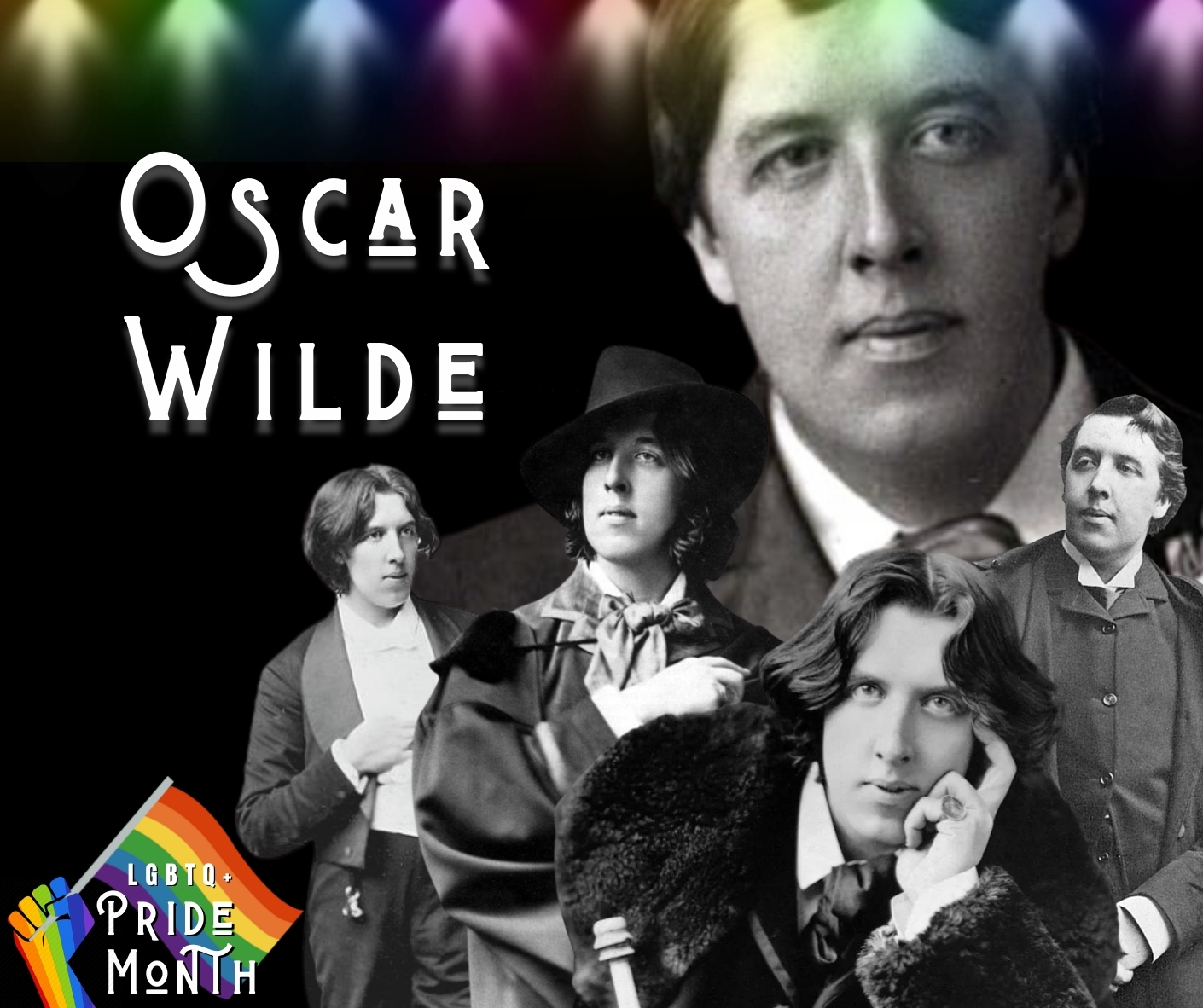In London, if you are leaving Charing Cross Station and heading toward Leicester Square or Covent Garden, you might cross the Strand and cut behind St. Martin’s in the Fields on Adelaide Street, which is a pedestrian walkway at the south end. It is a place where people rest or talk or hurry on by. There, in the middle of the crowd, rests a wonderful sculpture. It’s a grey/green sarcophagus-like box with upturned ends. Rising up at the north end is head and shoulders and one hand holding a cigarette. The hair is long. There is a frilly collar and a cravat. The face is alive and laughing, as if the owner is having a wonderful time. The name of the sculpture is “A Conversation with Oscar Wilde”. Looking at it you feel this would be a rare and fun conversation.
Oscar Wilde, the playwright, novelist, essayist, and poet was a most unusual man. He was born in Dublin in 1854. His father was an ear and eye surgeon who was knighted for his work in medicine. The father was also a noted philanthropist and writer. His mother was a poet who instilled in Oscar a love of poetry and art. Wilde learned Greek, Latin, and French as a child. He won a scholarship to Trinity College, Dublin in 1871 and won another scholarship to Magdalen College, Oxford in 1874. At Magdalen, Wilde was part of the aesthetic and decadent movements which stressed beauty and art for arts sake. Two of his tutors were Walter Pater and John Ruskin, the essayists and art critics.
In the 1880s, Wilde married, and he and his wife had two sons. His wrote primarily poetry and stories and essays for journals. He also edited and managed journals. By 1886 Wilde’s marriage was coming apart, and he was involved in gay relationships.
Most of Wilde’s work was published in the period of 1890 to 1895. The Picture of Dorian Gray, Wilde’s only novel, came out in 1890. The plays Salome, Lady Windermere’s Fan, A Woman of No Importance, An Ideal Husband, and The Importance of Being Earnest came out in 1891, 1892, 1893, 1894, and 1895 respectively.
In 1891, Wilde met Lord Alfred Douglas, an Oxford undergraduate, and the two began an affair. Soon they were involved in the Victorian underground of gay prostitution. In 1895, the Marquis of Queensberry, the father of Douglas, publicly accused Wilde of being gay. Although his friends advised him to ignore the public outing, Wilde decided he couldn’t let it go. He took the Marquis to court for libel and lost. Wilde was then charged with gross indecency. He was found guilty and sentenced to two years at hard labor, 1895 to 1897.
Prison ruined Wilde’s health. He never recovered from the hard labor, the diet, and the harsh treatment. While Wilde was in jail, he wrote a 50,000-word letter to Douglas that reflects on his earlier life, his relationship with Douglas, and what he learned during his time in jail. This work is called De Profundis. When Wilde left jail, he immediately left England and lived in poverty in France for his last three years. In 1897 he wrote “The Ballad of Reading Gaol” about life in prison.
Stage Coach has only done one Oscar Wilde play: We did a version of The Importance of Being Earnest in 2001. It was a good show, and we had a lot of fun doing it. Wilde is so clever that if you can just get the words out alright and not get in their way, the play works beautifully.
If you’re ever in London, you’ll want to visit the Wilde statue behind St. Martin’s in the Field. It’s inscribed with one of his most quotable sayings, one that says a lot about him, his life, and about society in general: “We are all in the gutter, but some of us are looking at the stars.”




